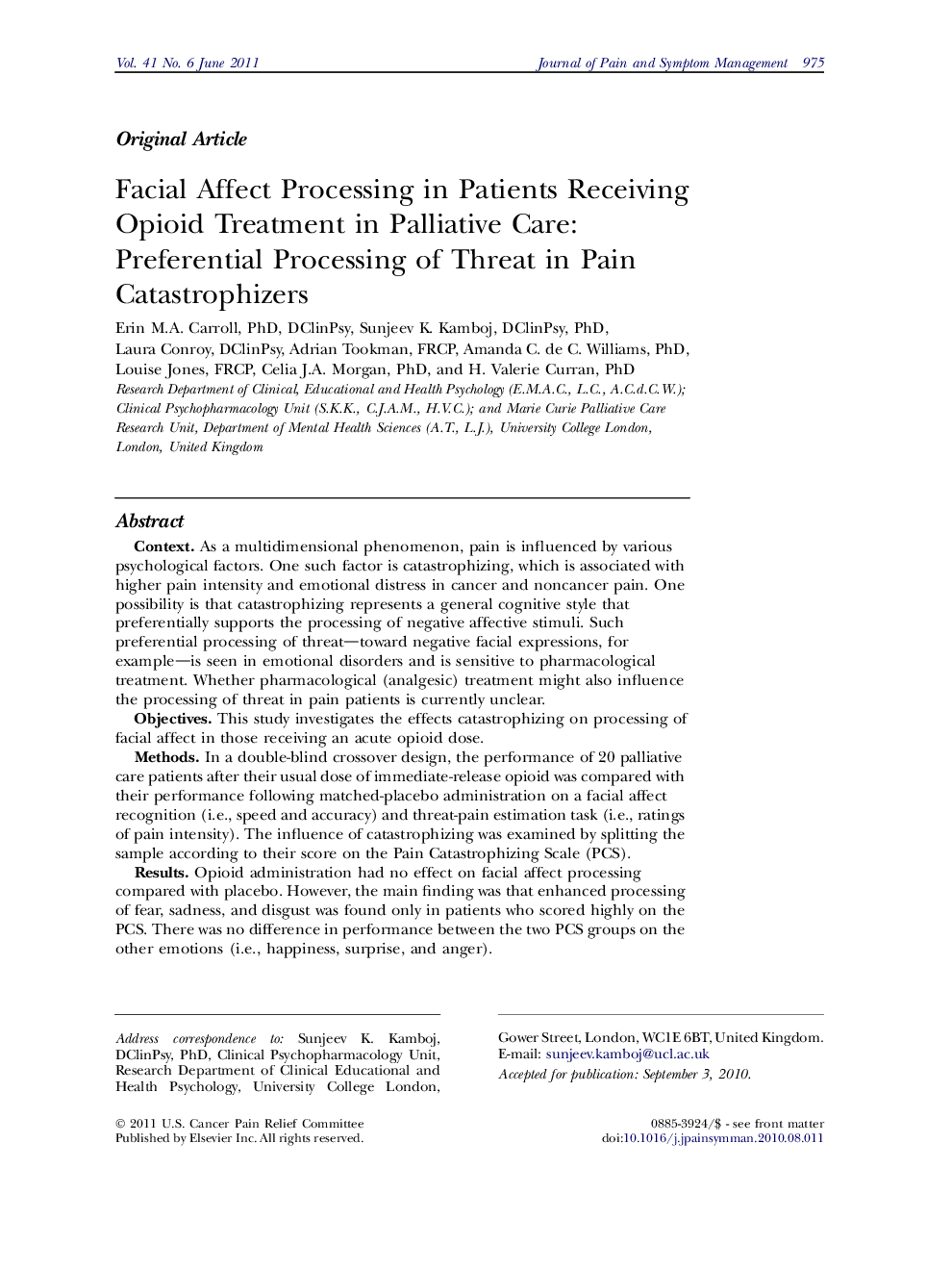| Article ID | Journal | Published Year | Pages | File Type |
|---|---|---|---|---|
| 2724441 | Journal of Pain and Symptom Management | 2011 | 11 Pages |
ContextAs a multidimensional phenomenon, pain is influenced by various psychological factors. One such factor is catastrophizing, which is associated with higher pain intensity and emotional distress in cancer and noncancer pain. One possibility is that catastrophizing represents a general cognitive style that preferentially supports the processing of negative affective stimuli. Such preferential processing of threat—toward negative facial expressions, for example—is seen in emotional disorders and is sensitive to pharmacological treatment. Whether pharmacological (analgesic) treatment might also influence the processing of threat in pain patients is currently unclear.ObjectivesThis study investigates the effects catastrophizing on processing of facial affect in those receiving an acute opioid dose.MethodsIn a double-blind crossover design, the performance of 20 palliative care patients after their usual dose of immediate-release opioid was compared with their performance following matched-placebo administration on a facial affect recognition (i.e., speed and accuracy) and threat-pain estimation task (i.e., ratings of pain intensity). The influence of catastrophizing was examined by splitting the sample according to their score on the Pain Catastrophizing Scale (PCS).ResultsOpioid administration had no effect on facial affect processing compared with placebo. However, the main finding was that enhanced processing of fear, sadness, and disgust was found only in patients who scored highly on the PCS. There was no difference in performance between the two PCS groups on the other emotions (i.e., happiness, surprise, and anger).ConclusionThese findings suggest that catastrophizing is associated with an affective information-processing bias in patients with severe pain conditions.
